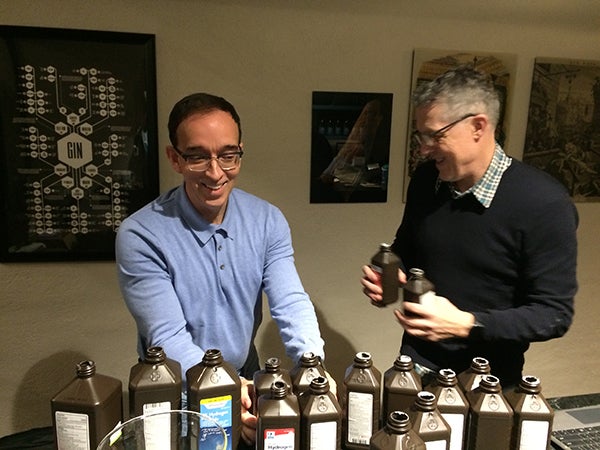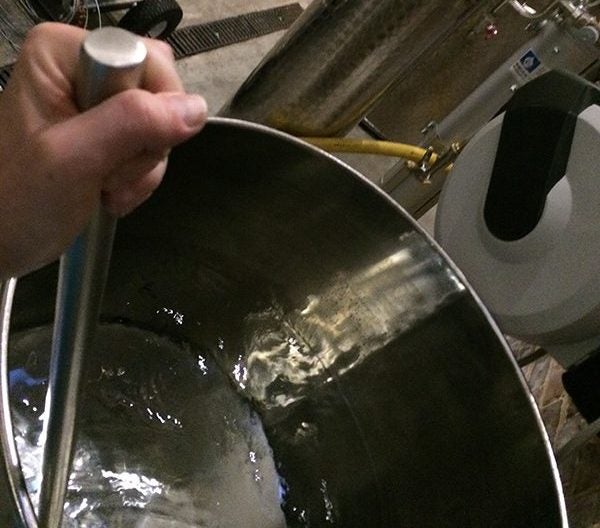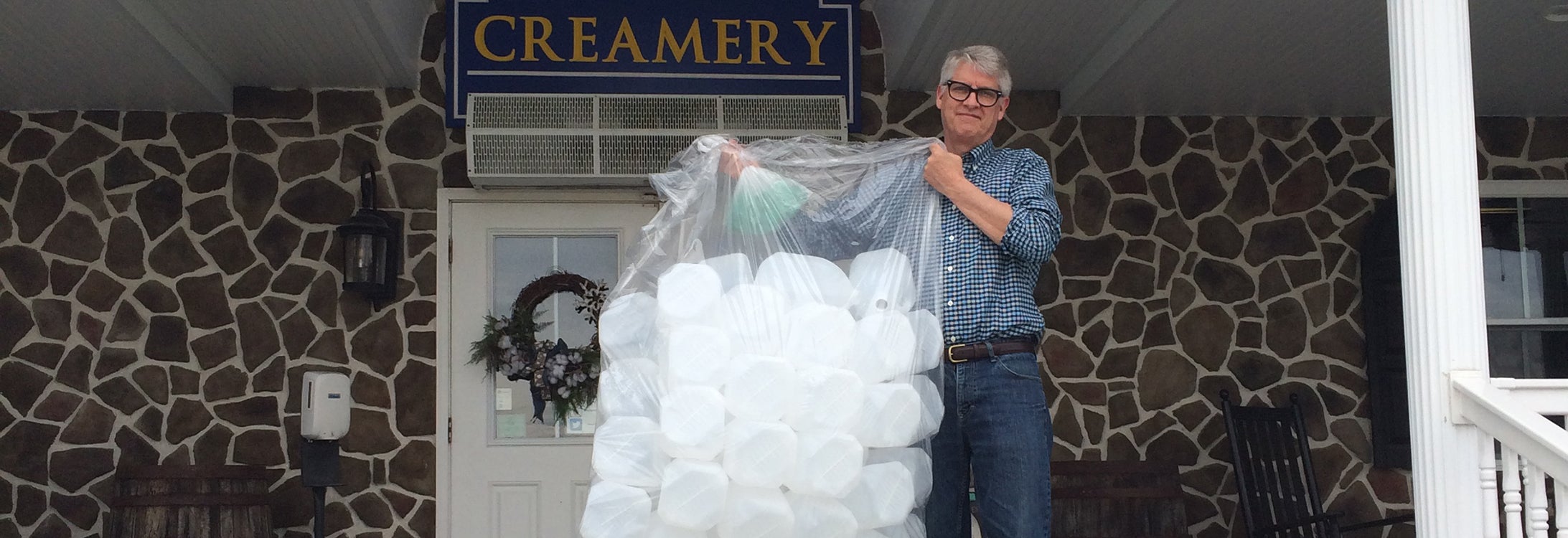SOURCING SANITIZER
Collaborators get to work on meeting community need
As the residents of eastern North Carolina adapted to working from home and homeschooling, and the first cases of COVID-19 in Pitt and Beaufort counties were confirmed, community members began to look for ways to help.
Facing a potential shortage of hand sanitizer, Dr. David Collier, professor of pediatrics and health disparities at East Carolina University’s Brody School of Medicine, had ordered a large supply of glycerin. Dr. Todd Jackson, director of pharmacy at ECU Physicians, had already begun compounding sanitizer with ingredients he had on hand and what he could source from the labs of other faculty members.
Using the FDA-approved recipe from the World Health Organization, Jackson was able to provide hand sanitizer to Greenville’s emergency homeless shelter, Community Crossroads Center, and other public agencies and nonprofits.
Meanwhile, Nick Sanders, owner of 1000 Piers gin distillery in Washington, had been approached by city officials looking to use his supplies and equipment to help meet municipal sanitizer needs. The city’s initial request was for 60 gallons, and Sanders reached out to Collier for help.

Todd Jackson (left) and Nick Sanders compound hand sanitizer at 1000 Piers in Washington.
“We are now pooling our resources (our glycerin, Nick’s ethanol and Todd’s compounding expertise, licensing and effort) and will work together to see if we can meet the needs of municipalities and health care entities across the region,” Collier said. A timely donation from Simply Natural Creamery provided jugs and lids for the first production run.
“This is a brand new effort and a lot might change,” Collier said.
Current challenges include sourcing hydrogen peroxide and more bottles — possibly for both bulk and individual distribution. Jackson is ensuring that the recipes are FDA approved and that labeling is correct.
“We produced 50 gallons yesterday,” said Sanders, and all but three were gone by close of business the following day. “We have demand for another 24 tomorrow, and it will keep coming.”
Sanders said other business owners and members of the community have contributed funds as well.
The first batch was distributed (some in 5-gallon paint buckets) to Washington EMS, DSM and homeless shelters in Washington and Greenville, Collier said.
HELPING THE HOMELESS
Since early March, alumna and Bite Toothpaste Bits co-founder Lindsay McCormick has repurposed thousands of glass bottles that normally hold toothpaste and filled them with homemade hand sanitizer to distribute to the homeless in Los Angeles.
“Even though we’re a toothpaste company, we were founded on the belief that we can all make a difference. So, when we heard there was a hand sanitizer shortage, we found the World Health Organization’s formula and made it,” McCormick said. The formula is a combination of alcohol, glycerin, sterile water and hydrogen peroxide.
“As we know, hand washing and social distancing are two top ways to help stop the spread of coronavirus. However, people who are experiencing homelessness have limited access to running water and are often in close contact, making it difficult to self-quarantine or social distance, and we wanted to do what we can to help our community,” McCormick said.
She teamed up with Shirley Raines, who runs the non-profit Beauty 2 The Streetz. Raines’ organization provides the homeless with meals, hygiene kits and free beauty services. During the coronavirus pandemic, Raines delivers weekly care packages that include bottles of Bite hand sanitizer, face masks and fruit.
-by Erin Ward, University Communications
Thx u @bitetoothpaste for supplying 200 bottles of hand sanitizer for the homeless. Today 200 people from our homeless community are able to wash their hands. 🙏🙏🙏 pic.twitter.com/IIXMp6CW18
— Shirley Raines (@beauty2streetz) March 21, 2020

Hand sanitizer is compounded for distribution to public agencies and nonprofits.
“We want to try and meet the local demand for hand sanitizer for the people who need to be out there interacting and who can’t stay home — EMS and daycare, end of life care,” Sanders said. “The goal is to keep people safe.”
Hopefully, Collier said, the effort will provided a needed product for keeping health care and other public service professionals healthy. “Once public service needs are met, we will try to meet the demand of the public,” he said.
“We have not been able to source small bottles that would be useful for public use, and once we are able to do so, we plan to offer hand sanitizer to the public at a reasonable price that will cover any overhead,” said Jackson.
The partnership reflects ECU’s commitment to regional transformation, both in meeting the community’s immediate needs and by helping provide a role for business owners and their employees sidelined by closures and the need for physical distancing.
Collaborative efforts like this are an example of how “social entrepreneurs are going to be one of the ways we make it back from the effects of COVID-19,” said Dr. Sharon Paynter, vice chancellor for community engagement and research.
Update: Additional partners have joined the effort to produce sanitizer, including Covington Vodka of Snow Hill, farmers who have contributed corn to produce alcohol, and Duplin Winery, which donated 600 gallons of wine to be stripped of the alcohol, Jackson said.
